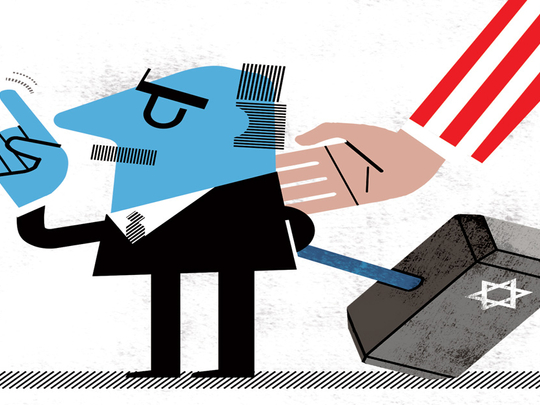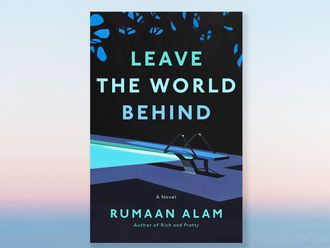
In a rare move, the New York Times recently published an article that argues the true nature of Zionism. Written by Israeli professor of Philosophy, Omri Boehm, the article states the obvious: Zionists have no qualms about labelling Israel’s critics anti-Semitic, while embracing pro-Israeli anti-Semites. This argument is not a new one, of course, but the fact that America’s so-called ‘Newspaper of Record’ would permit such a publication is rather unusual.
The article is inspired by the budding alliance formed between Israeli politicians and their supporters in the United States, on the one hand and by members of the prospective administration of President-elect Donald Trump on the other.
Boehm argues: “The alliance that’s beginning to form between Zionist leadership and politicians with anti-Semitic tendencies has the power to transform Jewish-American consciousness for years to come.”
In fact, there is an unfamiliar schism forming between Israel and its usual allies in the US-Jewish community, which, despite its relentless support of Israel, generally subscribes to liberal politics. That camp has succeeded in influencing the debate on Israel and Palestine for decades, swayed liberal circles in favour of Israel and labelled Israel’s critics ‘anti-Semitic’ if they dared to question Israeli action.
But a certain change is underway. “Alan Dershowitz, the outspoken Harvard emeritus professor of Law who regularly denounces non-Zionists as anti-Semitic”, wrote Boehm, is attacking those who are accusing members of Trump’s administration of being, some avowedly, ‘anti-Semites’.” “It is not legitimate to call somebody an anti-Semite because you might disagree with their politics,” Dershowitz was quoted as saying.
Those familiar with the Zionist ‘political theory’ that what’s good for Israel is good for all Jews, are not entirely surprised by the Israeli embrace of the US ultra-right, white nationalists who are about to dominate the country’s politics.
Indeed, it is because of this realisation (which will hopefully alert many to the dangers of conflating Zionism with Judaism and anti-Zionism with anti-Semitism) that the debate on Zionism must not be stifled. Shutting down the door on examining Zionism, its roots and its racist ideas go back decades. In addition, it has been given a new impetus by the British government.
On December 12, the government of British Prime Minister Theresa May officially adopted a new definition of anti-Semitism that includes legitimate criticism of Israel and which has been a rallying cry for Israel’s Zionist supporters since the country’s establishment of Israel in 1948. The definition was adopted earlier in the year by a pro-Israeli group, IHRA, although it was considered but abandoned by the European anti-racism agency in 2005.
Similar to the Israeli exploitation of US internal politics, the Israeli lobby worked diligently to find an opening in British politics.
The opportunity presented itself with a manufactured crisis that followed the elections of Jeremy Corbyn to the leadership of the British Labour Party. This decision left Corbyn being accused of being “soft” on anti-Semitism among its members. This ‘crisis’ was engineered by pro-Israeli groups to detract from genuine campaigning among Labour supporters, in order to bind Israel to its international obligations, and end the siege and occupation of Gaza.
Last October, a cross-party group issued a report that contributed to the confusion of ideas, condemning the use of the word “Zionist” as pejorative and claiming that such a use “has no place in civil society”.
While efforts to protect Israel from freedom of speech in Britain are still gathering steam, the debate in the US has long been stifled, with little room for any criticism of Israel in mainstream American media or ‘polite’ society. Effectively, this means that US policy in the Middle East remains beholden only to Israeli interests, the diktats of its powerful pressure and lobby groups.
Following suit, the UK is now adopting that same self-defeating position.
On December 16, 1991, the United Nations General Assembly had passed Resolution 46/86 — a single, reticent statement: ‘The General Assembly decides to revoke the determination contained in its resolution 3379 (XXX) of 10 November 1975.’ This was a reversal of an earlier resolution that equated Israel’s political ideology, Zionism, to racism.
The longer text of the initial resolution, 3379 of 1975, was based on a clear set of principles, including UN resolution 2106 of 1965, which defined racial discrimination as “any distinction, exclusion, restriction, or preference based on race, colour, descent or national or ethnic origin”.
The reversal of that resolution was the outcome of vigorous US lobbying and pressures that lasted for years.
As far as Israel is concerned, any criticism of the state and its political ideology is anti-Semitic, as are any demands for accountability from Israel regarding its military conducts during war. That is why Israel is welcoming of Trump’s disturbing selection of administration officials: As long as they support Israel’s illegal occupation and colony expansion, their anti-Semitism is rather a minor offence.
While indeed many of Israel’s critics make the mistake of conflating Zionists and Jews, Palestinians understand Zionism for what it is: A racially-motivated colonial expansionist project. In his article, ‘Zionism from the Standpoint of its Victims’, the late Professor Edward Said elaborates: “It is not unreasonable to find that the entire Palestinian-Arab experience seems unanimous about the view that Zionism visited upon the Arabs a singular injustice,” and that even before the British handed Palestine over to Zionist [colonists] upon which to establish a state formally in 1948, Palestinians universally opposed and variously tried to resist Zionist colonialism.”
Many countries share the Palestinian perception of Zionism as a form of colonialism and that prevailing perception is a historical fact, not a product of collective anti-Semitic collusion.
The reason why the question and debate of Zionism must not waver to any intimidation is that the essence of Zionism never matured, evolved or changed from its early, colonial version.
Israeli historian Ilan Pappe agrees. “The Zionist ideology and strategy have not changed from its very beginning,” he wrote. “The idea was ‘We want to create a Jewish state in Palestine, but also a Jewish democracy’. So the Zionists needed to have a Jewish majority all the time ... Therefore, ethnic cleansing was the only real solution from the Zionist perspective ...”
This remains the driving force behind Israeli policy towards Palestinians and Israel’s refusal to break away from a 19th century colonial enterprise into a modern, democratic state for all its citizens. To do so would be to sacrifice the core of its Zionist ideology, constructed on an amalgam of ethno-religious identities and to embrace a universal form of democracy in a state where Jews and Arabs are treated as equals.
Dr Ramzy Baroud is an internationally-syndicated columnist, a media consultant, an author of several books and the founder of PalestineChronicle.com. His latest book is My Father Was a Freedom Fighter: Gaza’s Untold Story.










